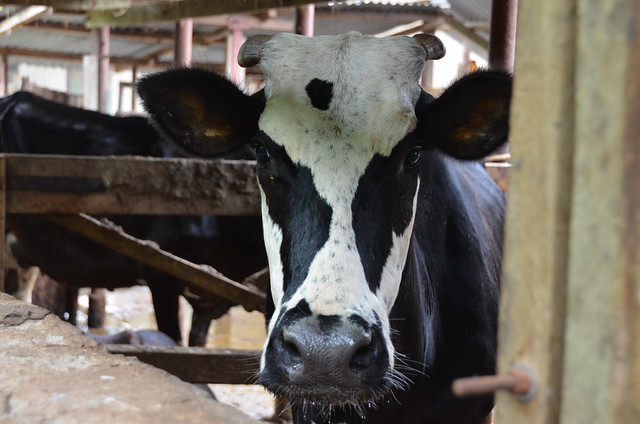By Mercy Becon
Heifer International, which is working with the International Livestock Research Institute (ILRI) and other partners in the Maziwa Zaidi project in Tanzania, has received a USD 750,000 grant from the Starbucks Foundation to fund the Mbozi Farmer Livelihood Improvement project, which will improve the livelihoods of smallholders in the country.
Maziwa Zaidi is funded by Irish Aid to support dairy market hubs in Tanga and Morogoro regions. The new funding to Heifer International will help improve livelihoods and quality of life for smallholder coffee growing communities in the East African country.
According to a 2 April 2015 press release in the MarketWatch website, ‘the project will assist at least 5,000 smallholder farmers in Tanzania by providing them with dairy heifers and bulls to complement coffee farming and increase their income.’
‘Farmers who own cows will receive training on proper dairy management and animal husbandry. A milk collection centre will also be developed to give larger dairy processors easier access to farmers’ milk.’
‘Adding dairy farming will ensure coffee farmers have a steady flow of income to reinvest into their coffee farms,’ said Pierre Ferrari, Heifer’s president and chief executive.
The project also will increase access to water and improve sanitation, as well as increase use of alternative sources of renewable energy.
Read the full article ‘Heifer awarded USD750,ooo from Starbucks Foundation to support coffee farmers in Tanzania.’


These are great projects but I am always disappointed that we are not able to link these types of projects to the meat aspect. To get dairy we must have bulls and of course we have old cows. The slaughter and safe distribution of meat as a “by-product” of these initiates could certainly be built into the project.
There could be a significant food security and added value aspect in this project with the right thought process.